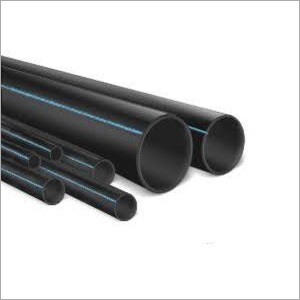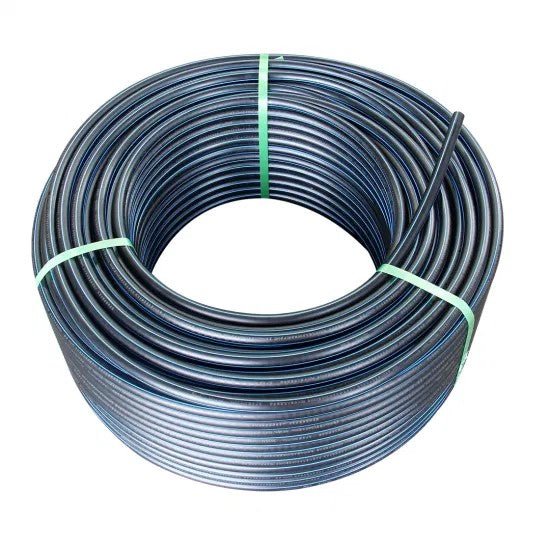Where to Find hdpe pipe in stock Midland TX for Urgent Projects
Recognizing the Secret Benefits of HDPE Pipeline for Water and Wastewater Management
Making use of HDPE pipeline in water and wastewater management offers various advantages that merit factor to consider. Its outstanding longevity and lengthy lifespan make it a preferred choice for lots of projects. Furthermore, the product's resistance to rust and chemical damages enhances its dependability in various settings. However, the advantages expand beyond simply long life and resistance. Discovering its cost-effectiveness and environmental impact exposes much more compelling factors for its widespread adoption in modern-day infrastructure
Exceptional Resilience and Longevity

HDPE pipeline stands out for its outstanding toughness and durability, making it a favored choice in water management systems. Constructed from high-density polyethylene, these pipes can withstand substantial stress and anxiety, making certain trustworthy efficiency gradually. Their durable nature enables them to endure extreme ecological problems, including temperature variations and dirt motions, which can cause various other products to stop working.
The lifespan of HDPE pipelines commonly exceeds half a century, providing a cost-efficient solution for municipalities and industries alike. Additionally, the product's light-weight residential or commercial properties simplify installment, decreasing labor costs and durations. This sturdiness minimizes the demand for regular repairs or replacements, further improving its economic charm.
In water management applications, the dependability of HDPE pipes indicates fewer interruptions and enhanced solution continuity, making them important to sustainable facilities growth. The combination of resilience and long life solidifies HDPE's duty as a cornerstone in efficient water monitoring services.

Resistance to Corrosion and Chemical Damages
While many products give in to corrosion and chemical damage over time, HDPE pipes show exceptional resistance, making them perfect for numerous water management applications. This resilience originates from the molecular structure of high-density polyethylene, which is naturally non-reactive and does not wear away like metals or weaken from exposure to extreme chemicals. Because of this, HDPE is extremely reliable in environments with hostile substances, such as wastewater systems that may have acids, bases, and organic solvents.
Furthermore, HDPE pipelines can endure ecological factors such as soil acidity and saline problems, further improving their viability for varied applications (hdpe pipe in stock Midland TX). Their capability to keep architectural honesty gradually decreases the danger of leakages and failures, which is crucial in making sure the safety and security and integrity of water circulation and wastewater management systems. The resistance to deterioration and chemical damage considerably contributes to the overall effectiveness and longevity of HDPE piping solutions.
Cost-Effectiveness and Economic Advantages
When taking into consideration the financial implications of water management systems, the cost-effectiveness of HDPE pipelines comes to be noticeable. These pipelines use reduced setup and maintenance costs compared to traditional products like steel or concrete. Their lightweight nature simplifies transport and installment, causing decreased labor costs. Additionally, HDPE pipes show a lengthy lifespan, frequently exceeding 50 years, which translates to fewer substitutes and long-lasting cost savings.
The resistance of HDPE to rust and chemical damage decreases the requirement for costly fixings and replacements. The pipes likewise sustain efficient water circulation, minimizing energy prices connected with pumping systems. By reducing leakages and water loss, HDPE pipes add to considerable economic advantages for municipalities and sectors alike. In general, the preliminary investment in HDPE piping can generate substantial economic returns over the lifespan of the water monitoring system, making it a prudent option for sustainable infrastructure advancement.
Environmental Sustainability and Minimized Impact

Versatility and Adaptability in Setup
Due to their special properties, HDPE pipes use amazing flexibility and adaptability in installation, making them ideal for a vast array of applications. Their lightweight nature enables much easier handling and transport, minimizing labor prices and installment time. HDPE pipelines can be curved and formed to fit numerous terrains and job needs, which is particularly helpful in testing environments.
Additionally, their resistance to corrosion and chemical damage enables setup in varied setups without the demand for specialized safety coverings. The capability to fuse joints produces a constant, leak-free system, improving the general stability and dependability of the installment. HDPE's adaptability additionally suits ground activity, lowering the threat of damages in locations susceptible to moving soil. Generally, these attributes make HDPE pipes not only flexible but also a preferred choice for view publisher site water and wastewater monitoring systems.
Regularly Asked Inquiries
Just How Does HDPE Pipeline Contrast to PVC in Water Administration Applications?
HDPE pipe provides exceptional flexibility, resistance to deterioration, and resilience compared to PVC. Its lighter weight facilitates less complicated setup, while its lengthy lifespan reduces substitute expenses, making HDPE a recommended option in water administration applications.
What Is the Lifespan of HDPE Piping Under Normal Conditions?
Under regular conditions, HDPE pipelines can have a life expectancy ranging from 50 to 100 years. Their resilience and resistance to deterioration add to their long-lasting performance in various applications, making them a trustworthy choice for framework.
Are HDPE Water Lines Recyclable After Their Service Life?
Yes, HDPE pipelines are recyclable after their life span. American Plastics HDPE Pipe Manufacturing. They can be processed and repurposed right into new items, considerably decreasing ecological impact and promoting sustainability within the sector, making them a green choice for piping remedies
What Is the Installation Refine for HDPE Water Lines?
The installation process for HDPE pipelines involves website prep work, trenching, pipe combination or mechanical signing up with, backfilling, and pressure testing. Correct techniques ensure a durable and effective system for transporting water and wastewater successfully.
Can HDPE Piping Be Used for Both Drinkable and Non-Potable Water Equipments?
Yes, HDPE pipelines can be made use of for both potable and non-potable water systems. Their convenience, resilience, and resistance to rust make them ideal for numerous applications, ensuring risk-free and reliable transportation of water in various contexts.